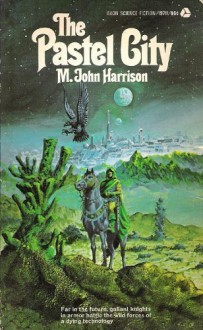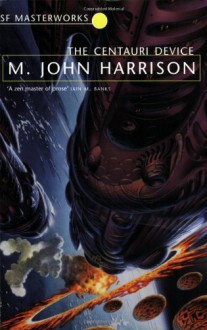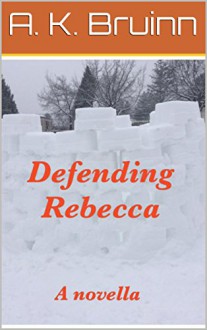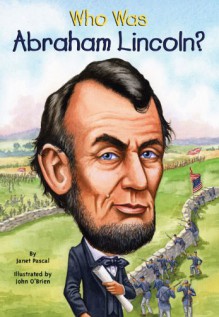
Fantasy has always had its moralizers and its mischief-makers, those who use the symbolism of magic to create instructive fables, and those who use the strangeness of magic to tap into the more remote corners of the soul, and then obscure their transgressions behind the fantastical facade. Like Moorcock, Leiber, and Vance, Harrison is playful, he is rebellious.
Indeed, in his swift, pulpy approach, Harrison very much resembles those authors, but his voice sets him apart. There is a scintillation, a sophistication, a turn of phrase which shows a practiced hand, and unlike many fantasy authors, Harrison's voice is very consistent. He is aware of what he is doing, the effect he means to produce, and he generally succeeds.
Moorcock was fond of saying that he was a 'bad writer with big ideas', and the same can be said of many genre writers, from R.E. Howard on, but Harrison is not a bad writer, and it's enjoyable to see someone of his skill take up the torch--leaving no doubt why he was so successful in inspiring New Weird authors like Mieville and VanderMeer to tear into genre (with varying degrees of success).
He had already made a name for himself as an editor and ruthless critic working at Moorcock's New Worlds, often lamenting the shallow predictability of genre fiction (his critical work has been collected in Parietal Games ), and this is clearly a stab at trying to break out of that monotony--to practice what he had been preaching. It is rather less wild and experimental than his later works, but there is something very effective in the straightforward simplicity displayed here.
The most obviously groundbreaking aspect of the work is his setting (not, as Harrison would insist, his 'world'). He combines science fiction and fantasy tropes quite freely, but with much greater success than Leiber's clunky attempts, and much more overtly than Moorcock's nods to quantum physics in Elric. It acts as a reminder that despite all the purists trying to drive a definitive wedge between the genres, they are really doing the same thing: creating physical symbols through which to explore ideas (it's Clarke's Third Law again).
An easy example is Star Wars, a fantasy story about wizards, prophecy, spells, magic swords, funny animals, good vs. evil, and the monomyth which adopts science fiction only as an aesthetic, a 'look'. It isn't forward-looking, it's mythical, which is why the laser beams only shoot at a fixed point in front of the ship, like World War I biplanes. Nowadays, the concept of mixing fantasy and sci fi has trickled down into the public consciousness, showing up in cartoons like Adventure Time--and to a large part, we have Harrison to thank for that, because his version (complete with laser swords) came years before Star Wars, and also presents a much more nuanced view of the world.
On the surface, Harrison's rusted-out future world resembles Vance's, but it's much closer to fellow New Wave Britisher J.G. Ballard (or Le Guin): a fantastical headspace of extremes, when everything is dying and collapsing around you, and yet life goes on--dwindling, certainly, but fundamentally not very different from how it has always been. It’s a portrait of existential dread, our fear of being alone, our foolish habit of nostalgia, of seeing the past not as it was, but as a sort of promised land, a missed opportunity for our neurotic brain to cling to.
The dying world is the legacy of poets (at least, of the Victorians, who have the most influence on our modern notions of the poetic self), from Byron’s Darkness to Shelley’s The Last Man and the mythology of Blake--and of course arch-pilferer Eliot’s The Waste Land. Indeed, in this post-modern world, it’s become almost trite to riff on The Waste Land and it’s world built around the sad, intellectual man who regrets that all meaning has been stripped away, and he’s left to figure it out on his own.
However, fantasy has long been lagging behind, particularly highly-visible epic fantasy, like Tolkien’s, which behaves as if existentialism and skepticism never happened, instead inundating the reader in a top-down, authoritative voice full of message and allegory and obvious symbolism--though Tolkien himself often denied that this was the case, as a believer, to him the real world was a symbolic allegory.
The 'dying Earth' is the same old trick of fantasy, to take a state of mind and literalize it, to produce a setting that reflects it, and through which the author can explore it. It's like how in a Gothic novel, it rains when people are said, and lightning strikes as the villain observes the results of his cruelty.
Sure, it's also what a comics writer does when he puts the fate of the world at stake to increase the tension--but I won't say it's a bad trick, or a dirty one--it all depends on the magician who is using it. Are the a con artist, trying to win us over and sell us something, or are they a trickster like Houdini or James Randi, forcing us to confront the fact that we can so easily be fooled--indeed, that we may want to be fooled.
I find Harrison to be a trickster, an invoker of our better nature, if only because he realizes that the mind can be unsure--it can change--so, what happens to a world founded upon a changing mind? It's a question Harrison only touches on here, before diving in headlong in the next book, and finally getting a grasp on it in the third and fourth.
Unfortunately, one area where Harrison fails to meaningfully improve upon earlier genre outings is the portrayal of women. They are rarely present, and when they are, they tend to the weak and distant. We don't get inside their heads as we do the male characters, and so they do not really feel like complete characters, but objects of focus and motivators for the men around them. I mean, it's not like we're getting a trite Madonna/Whore love triangle, like Tolkien's, but moving from 'bad' to 'neutral' isn't much of an improvement, especially for a book written in the seventies--and the portrayals don't get much deeper in the later books.
I've often complained that many genre authors (like fellow dying-earther Gene Wolfe) give you two hundred pages of plot buried in four hundred pages of explanation, description, exposition, repetition, and redundancy--but I'm glad to say that in Harrison's case, he's happy to give us the two hundred and leave off the rest.
My List of Suggested Readings in Fantasy


 Log in with Facebook
Log in with Facebook 








